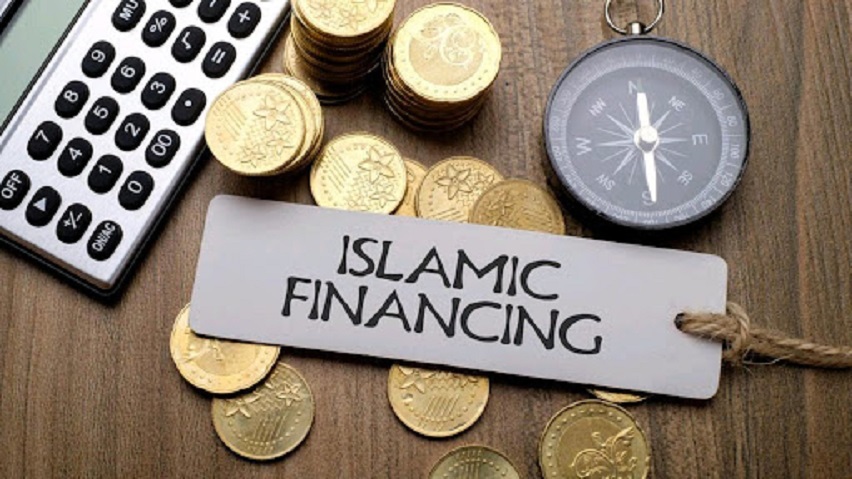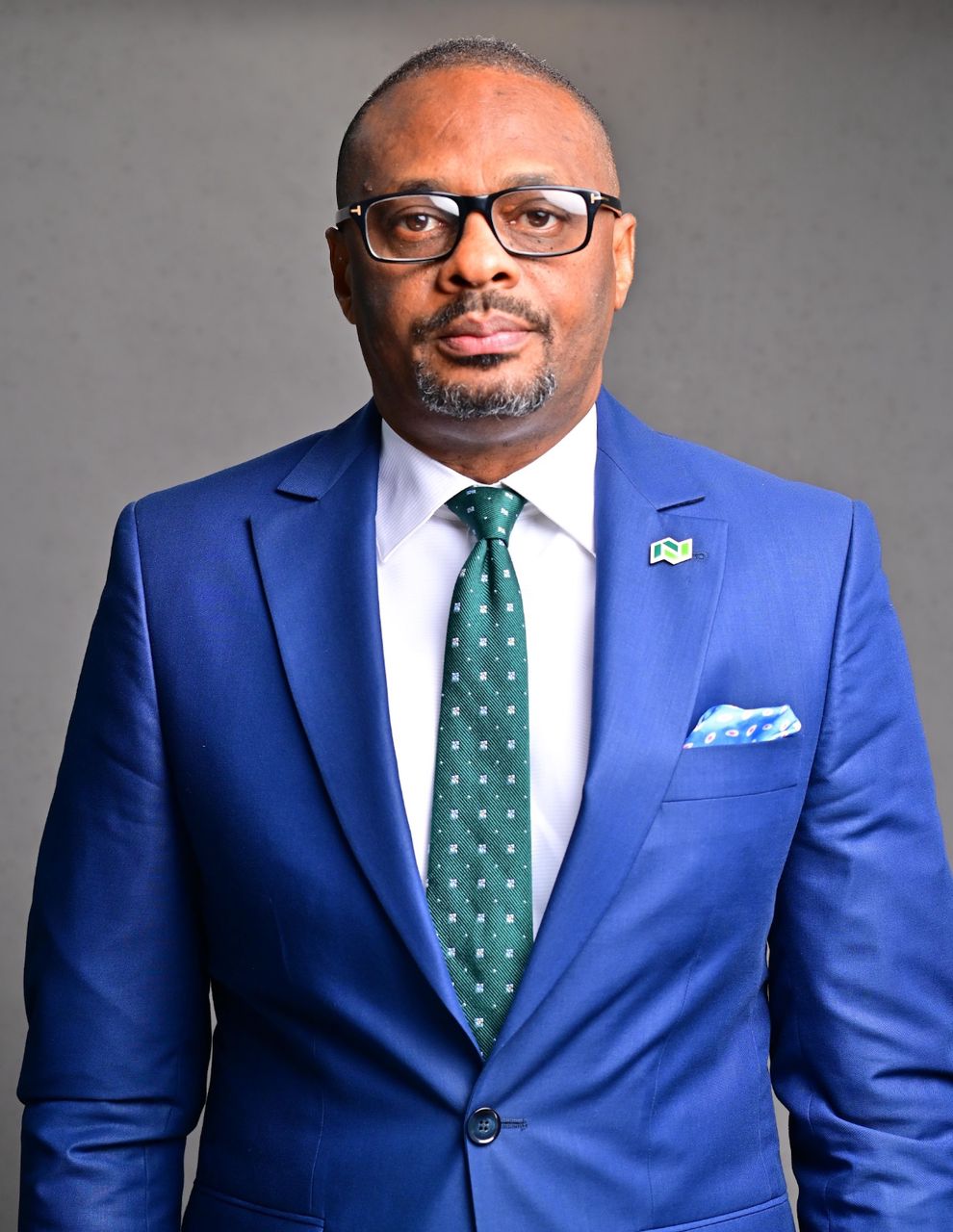Economy
SEC Vows to Make Islamic Capital Market Attractive in Nigeria

By Dipo Olowookere
Those who wish to explore the Islamic capital market in Nigeria have been assured of an attractive enabling environment by the Securities and Exchange Commission (SEC).
According to the Director-General of SEC, Mr Lamido Yuguda, efforts are being made to work with relevant stakeholders to implement recommendations for the non-interest capital market sector in line with the objectives of the 10-year Nigerian Capital Market Master plan (2015-2025), which include developing the segment of the market to contribute at least 25 per cent of the overall capital market capitalisation by 2025, with Sukuk contributing 15 per cent of outstanding bond issuances.
Mr Yuguda, who spoke at the 2021 African International Conference on Islamic Finance held in Abuja on Wednesday, stated that Islamic finance instruments are globally recognized as acceptable securities, with less Value-at-Risk due to their asset-based and project-tied investment features.
He noted that due to this, the sector offers financial products that are safe, competitive and attractive, adding that many jurisdictions have realised the potentials in Islamic finance and have positioned themselves to tap the potential benefit of such financing.
“It is noteworthy that since Islamic finance heavily relies on the Islamic capital market (ICM) as an investable outlet, products such as Sukuk (Islamic bond), Islamic REITs (I-REITS), Islamic Funds (I-Funds) and Exchange-mirrored Traded Funds (Islamic Equity Index) could all be offered for the purpose of financing infrastructure,” the SEC chief, who was represented by the Executive Commissioner Corporate Services SEC, Mr Ibrahim Boyi, submitted.
At the event themed Infrastructure Financing, Sustainability, and the Future of African Markets 2.0, he further stated that, “Sukuk issuances are increasingly gaining significance as a veritable mode of infrastructure financing.
“Consequently, a number of countries in the Sub-Saharan region of the continent; Sudan, Gambia, Senegal, South Africa, Ivory Coast, Nigeria, Mali, and Togo, have issued sovereign Sukuks to finance infrastructure.”
“For example, we have reviewed existing regulatory frameworks and introduced new ones. In particular, we issued rules on Islamic Fund Management as well as on Sukuk issuance.
“These two legal frameworks have encouraged Islamic product innovation with the registration of ten ethical/shariah compliant funds and the issuance of Nigeria’s sub-national Ijara Sukuk by the Osun State government in 2013, which was oversubscribed.
“Also, the federal government, through the Debt Management Office (DMO) has so far issued Ijara Sukuk in excess of N350 billion within the last 3 years. The funds were used to construct and rehabilitate infrastructure development projects across the six geo-political zones of the country.”
He noted that the agency recently approved a N30 billion corporate Sukuk programme and a N10 billion series issuance under the programme. This marks the first corporate Sukuk issuance to the public; commendably, the proceeds are to be used to finance housing infrastructure.
Similar to the sovereign issuances, the corporate issuance was also oversubscribed. The issuance was a landmark in the Market and we are confident that more corporates will begin to access the market.
According to him, the theme of this year’s conference resonates with a core function of the capital market as the market plays a crucial role in enabling access to medium and long term financing which is better suited to infrastructural development.
“According to the AfDB, Africa requires an annual investment of between $130 and $170 billion annually in infrastructure to reduce its infrastructure deficit. While according to the Global Infrastructure Hub (2020), Africa required an infrastructure investment of $184.03 billion in 2019 and $190.1 billion in 2020 to close its infrastructure deficits.
“The African continent continues to be challenged by deficits in infrastructure with governments being the major financier of infrastructure. Regrettably, governments’ efforts to finance the sector is constrained by large deficits in the budget, rising public debt and debt sustainability concerns,” he said.
He disclosed that the commission was also considering modalities to constitute a Sharia Advisory Council as a body of experts to advise the SEC and the market on non-interest products and their applications.
“Going forward, our focus will be on public enlightenment to encourage sub-national and corporate issuances and stronger capacity building initiatives. This is what informed the idea of hosting 3 webinars on non-interest capital market products in 2021 and more will be organised next year.
“We hope that the State governments represented here will take advantage of this important opportunity to familiarize themselves with the kind of products that can be issued and how to leverage this exciting area of finance to better the lives of our citizens.”
He reiterated the SEC’s commitment to continue to identify ways of using Non-Interest capital market products such as Sukuk as a tool for financing infrastructural development.
“We are committed to facilitating the growth of the non-interest capital market segment through innovation whilst ensuring a fair, efficient and transparent market.
“We will continue to put in place clear and consistently applied regulatory frameworks and reduce regulatory and operational impediments to engender the smooth functioning of the market,” he added.
Economy
Dangote Refinery Finally Hits Full 650,000-Barrel Per Day Capacity

By Adedapo Adesanya
Dangote Refinery has reached its full capacity of 650,000 barrels per day following the successful optimisation of critical processing units, marking a turning point for Africa’s largest refinery, located in Lagos.
The $20 billion facility is now operating at full capacity, a world-record milestone for a single-train refinery.
This achievement comes after the completion of an intensive performance testing on the refinery’s Crude Distillation Unit and Motor Spirit production block.
According to the chief executive of Dangote Refinery, Mr David Bird, the refinery is now positioned to supply up to 75 million litres of petrol daily to the domestic market, a dramatic increase from the 45 million – 50 million litres delivered during the recent festive period.
The development can reshape Nigeria’s energy landscape and reduce the country’s longstanding dependence on imported refined products.
“Our teams have demonstrated exceptional precision and expertise in stabilising both the CDU and MS Block,” Mr Bird said. “This milestone underscores the strength, reliability, and engineering quality that define our operations.”
The refinery has completed a 72-hour series of performance test runs in collaboration with technology licensor UOP, a Honeywell company, to validate operational efficiency and confirm that all critical parameters meet international standards.
The tests covered the naphtha hydrotreater, isomerisation unit, and reformer unit, which together form the backbone of the facility’s gasoline production capability.
The milestone marks another achievement for the businessman and majority stake owner at the facility in his ambition to transform Nigeria from Africa’s largest crude oil producer into a refining powerhouse.
Since the commencement of the facility in 2016, it has faced numerous setbacks, including pandemic-related delays, foreign exchange challenges, and technical complications.
It was finally commissioned in May 2023 to help wean Nigeria off imported petroleum products, due to the chronic underperformance of its state-owned refineries.
Despite being Africa’s largest crude producer, the country has not been able to self-produce, even with four state-owned refineries with a combined capacity of 445,000 barrels per day. This has led to decades of high dependency on importation.
The Dangote refinery’s emergence at full capacity has the potential to eliminate this import dependence while positioning Nigeria as a net exporter to West African markets.
Yet, the refinery faces difficulty securing adequate crude oil supplies from Nigerian producers, forcing it to import feedstock from the US, Brazil, Angola, and other countries.
Mr Bird also confirmed that Phase 2 performance test runs for the remaining processing units are scheduled to commence next week, suggesting further capacity optimisation ahead.
The official emphasised the refinery’s commitment to “enhancing Nigeria’s energy security while supporting industrial development, job creation, and economic diversification.”
Economy
NASD OTC Exchange Rallies 0.74%

By Adedapo Adesanya
For the third consecutive session, the NASD Over-the-Counter (OTC) Securities Exchange closed in positive territory after it gained 0.74 per cent on Wednesday, February 11, amid a flat market breadth index.
The bourse recorded five appreciating securities as well as five depreciating securities during the midweek session.
On the gainers’ side of the market was Central Securities Clearing System (CSCS), which added N5.80 to sell at N70.53 per share versus Tuesday’s closing price of N64.73 per share.
Further, Air Liquide Plc appreciated by N2.02 to N22.34 per unit from N20.32 per unit, Afriland Properties Plc improved by 25 Kobo to N16.20 per share from N15.95 per share, First Trust Mortgage Bank Plc expanded by 6 Kobo to 75 Kobo per unit from 69 Kobo per unit, and Food Concepts Plc grew by 2 Kobo to N2.91 per share from N2.89 per share.
On the flip side, Okitipupa Plc lost N17.00 to sell at N220.00 per unit compared with the previous day’s N237.00 per unit, NASD Plc dropped N5.14 to trade at N46.26 per share versus N51.40 per share, Geo-Fluids Plc depreciated by 39 Kobo to close at N4.02 per unit versus N4.41 per unit, Acorn Petroleum Plc went down by 6 Kobo to N1.31 per share from N1.37 per share, and Industrial and General Insurance (IGI) Plc slipped by 5 Kobo to 54 Kobo per unit from 59 Kobo per unit.
At the close of trading activities, the market capitalisation increased by N17.05 billion to N2.308 trillion from N2.291 trillion, while the NASD Unlisted Security Index (NSI) advanced by 29.50 points to 3,858.81 points from 3,830.31 points.
Yesterday, the volume of securities jumped 15,181.4 per cent to 1.06 billion units from 6.9 million units, the value of securities surged 10.4 per cent to N465.7 million from N89.1 million, and the number of deals rose by 21.8 per cent to 56 deals from 46 deals.
The most active stock by value on a year-to-date basis was CSCS Plc with 18.2 million units worth N790.9 million, trailed by Resourcery Plc with 1.04 billion units valued at N408.6 million, and Geo-Fluids Plc with 29.2 million units sold for N150.8 million.
As for the most active stock by volume on a year-to-date basis, the position was taken over by Resourcery Plc with a turnover of 1.04 billion units valued at N408.6 million, while Geo-Fluids Plc moved to second place with 29.2 million units exchanged for N150.8 million, and the third place was occupied by Mass Telecom Innovation Plc with 20.1 million units worth N8.1 million.
Economy
Naira Trades N1,348/$1 as CBN Opens Official Market to BDC Operators

By Adedapo Adesanya
The Naira appreciated against the US Dollar in the Nigerian Autonomous Foreign Exchange Market (NAFEX) on Wednesday, February 11, by N2.07 or 0.15 per cent to N1,348.95/$1 from N1,351.02/$1 as the Central Bank of Nigeria (CBN) moved to further ease shortages and narrow the gap between the official and street rates.
The CBN approved the participation of licensed Bureaux De Change (BDC) operators in the Nigerian Foreign Exchange Market (NFEM) as part of efforts to improve forex liquidity in the retail segment of the market and meet the legitimate needs of end users.
The apex bank capped the weekly FX purchases at $150,000, adding that utilisation complies with existing BDC operational guidelines.
In the same official market, the Nigerian currency gained N6.46 against the Pound Sterling to quote at N1,840.11/£1 versus N1,846.57/£1, and added N6.36 on the Euro to close at N1,600.13/€1, in contrast to the preceding session’s N1,606.49/€1.
At the GTBank FX counter, the Nigerian Naira gained N5 on the greenback to settle at N1,358/$1 versus the previous day’s N1,363/$1, but remained unchanged at N1,430/$1 in the black market.
Meanwhile, the digital currency market was bearish yesterday as traders sold their positions after digesting a more hawkish macro outlook.
Analysts mainly attributed the latest crypto selloff to shifting expectations around US macro policy, following a “hawkish shift” in Federal Reserve expectations after Kevin Warsh’s nomination as chairman of the US central bank, which signals tighter liquidity and fewer rate cuts ahead.
Traders will be watching key US labour market data for signs on the future path of interest rates and broader risk appetite.
Solana (SOL) shed 3.2 per cent to sell at $79.86, Ethereum (ETH) depreciated by 2.7 per cent to $1,958.44, Bitcoin (BTC) dropped 1.5 per cent to $67,540.62, Cardano (ADA) slid 1.5 per cent to $0.2579, Ripple (XRP) dipped 1.4 per cent to $1.37, Binance Coin (BNB) slumped 1.2 per cent to $609.73, Litecoin (LTC) went down by 1.2 per cent to $52.58, and Dogecoin (DOGE) crashed by 1.1 per cent to $0.0917, while the US Dollar Tether (USDT) and the US Dollar Coin (USDC) closed flat at $1.00 each.
-

 Feature/OPED6 years ago
Feature/OPED6 years agoDavos was Different this year
-
Travel/Tourism10 years ago
Lagos Seals Western Lodge Hotel In Ikorodu
-

 Showbiz3 years ago
Showbiz3 years agoEstranged Lover Releases Videos of Empress Njamah Bathing
-

 Banking8 years ago
Banking8 years agoSort Codes of GTBank Branches in Nigeria
-

 Economy3 years ago
Economy3 years agoSubsidy Removal: CNG at N130 Per Litre Cheaper Than Petrol—IPMAN
-

 Banking3 years ago
Banking3 years agoSort Codes of UBA Branches in Nigeria
-

 Banking3 years ago
Banking3 years agoFirst Bank Announces Planned Downtime
-

 Sports3 years ago
Sports3 years agoHighest Paid Nigerian Footballer – How Much Do Nigerian Footballers Earn
















